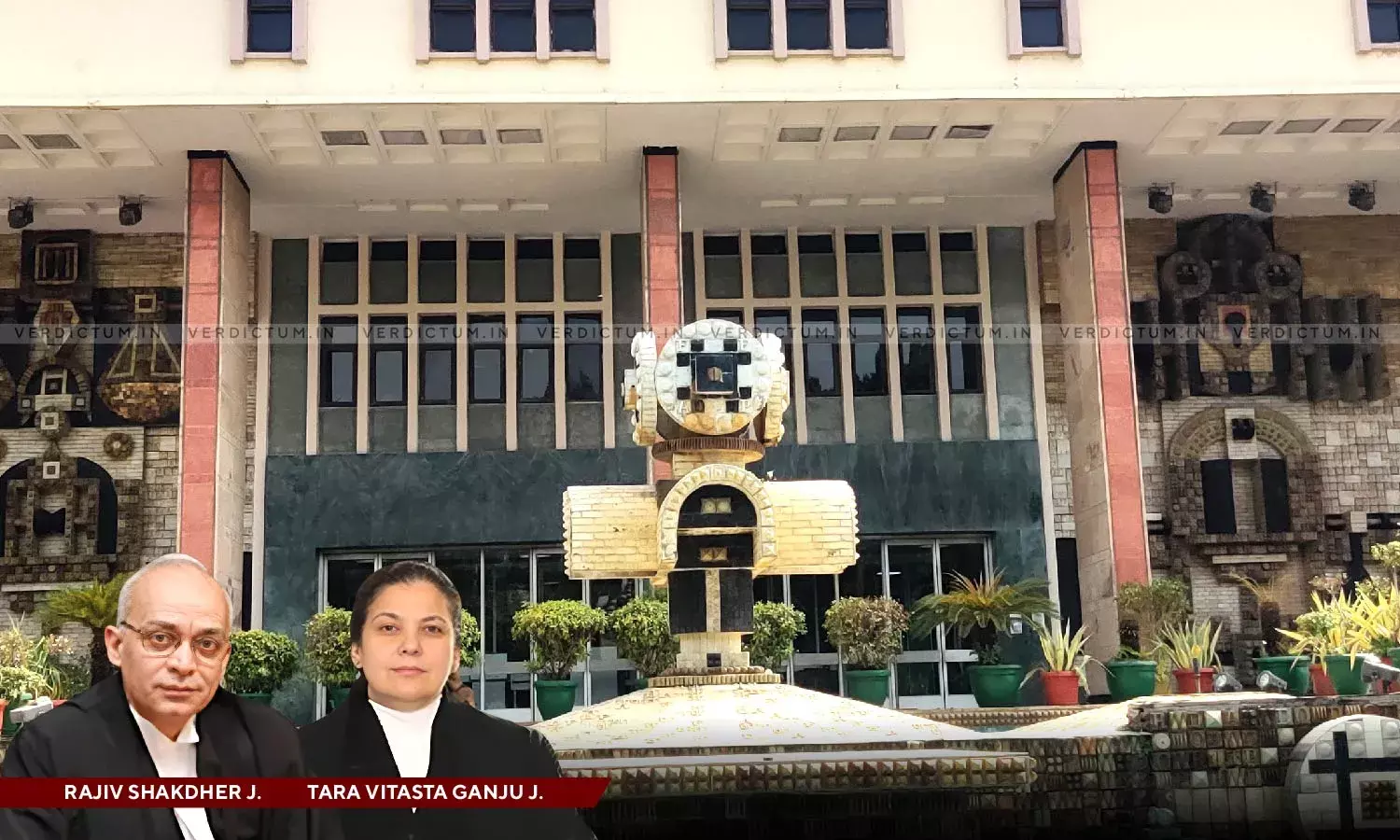Arbitration Award Must Be Served To Party And Not To Their Agent Or Advocate: Delhi HC

The Delhi High Court held that for a valid delivery of an Arbitral Award under Section 31(5) of the Arbitration and Conciliation Act, 1996 (Act), the service of the award must be specifically directed to the concerned party, not their agents or advocates.
The Court allowed the appeal of the Ministry of Health and Family Welfare (MoHFW) against the Trial Court's rejection of Section 34 Application, which contested an Arbitral Award and Corrigendum Order granting Rs. 15,11,66,498 to M/S Hosmac Projects Division Of Hosmac India Pvt Ltd (Hosmac).
The Court recognized the Appellant/MoHFW as the arbitration party, not RML. The Court noted that the Arbitral Award was sent to RML's counsel but not to the Appellant/MoHFW, rendering the service invalid under Section 31(5) of the Act.
The Bench comprising Justice Rajiv Shakdher and Justice Tara Vitasta Ganju observed, “party as defined in Section 31(5) and Section 2(1)(h) of the Act can only mean the party themselves and not their agent, or their Advocate and to constitute proper compliance, only service on the party himself is required”.
Advocate Praveen Kumar Jain appeared for the Appellant and Senior Advocate Nakul Dewan appeared for the Respondent.
The case involved a dispute between the MoHFW and Hosmac regarding a construction and renovation agreement for Emergency Care Services and VIP Rooms at Dr Ram Manohar Lohia Hospital (RML), New Delhi. Disputes, including payment and liquidated damages, arose, leading to arbitration.
The Sole Arbitrator awarded Rs. 22,05,09,651 to Hosmac, along with costs. A correction reduced the amount to Rs. 15,11,66,498. The MoHFW and the hospital filed a petition before the Trial Court to set aside the Arbitral Award and the Corrigendum Order. The Trial Court dismissed the Petition filed under Section 34 of the Act. Aggrieved, the MoHFW approached the High Court by way of an Appeal Section 37 challenging the judgment of the Trial Court.
The High Court had issued an order instructing the Sole Arbitrator to submit the entire Arbitral record. The Registrar General of the Court received a letter from the Sole Arbitrator, and this letter was presented to the Court and was part of the case file.
The Court framed the issue: “Whether the delivery of the true copy of the Arbitral Award and a copy of the Corrigendum Order to an authorized representative of RML would constitute delivery upon the Appellant/MoHFW in accordance with Section 31(5) of the Act for the purposes of calculating limitation under the Act?”
The Bench noted that, under the Arbitration and Conciliation Act, a Section 34 petition must be filed within three months of receiving the Arbitral Award or from the date when a request under Section 33 is disposed of. An additional 30 days may be granted if the party shows sufficient reasons for the delay. The Bench observed that Section 31 of the Act specifies the form and content of an Arbitral Award, requiring it to be drawn up and signed by all tribunal members. Section 31(5) mandates the delivery of a signed copy to each party, defined in Section 2(1)(h) as a participant in the Arbitration Agreement. The conclusion was that the time limitation for a Section 34 petition begins when the party receives the Arbitral Award.
In the context of monolithic organizations, particularly the Government, the Court relied on the Supreme Court judgment in the case of UOI v Tecco Trichy Engineers & Contractors [(2005) 4 SCC 239]. The High Court reiterated that for effective service, a copy of an Award must be delivered to a person within the organization who possesses the knowledge and is best suited to understand and make decisions regarding the Award's challenge. The Court noted that the term "party," as defined in Section 2(1)(h) of the Act, specifically refers to a person involved in the Arbitration Agreement. The definition does not include the agent of the party. The Bench observed that for proper compliance, service must be directly on the party and not on their agent or advocate.
The Bench observed that a copy of the Arbitral Award was sent to the counsel for the parties and the authorized representative of RML but not to the Appellant/MoHFW. No other document has been received from the Sole Arbitrator proving service on Appellant/MoHFW.
The Court emphasized that a signed copy of the Arbitral Award should be delivered to each party directly, and this delivery should be to a party competent to decide whether to challenge the Award. The term 'party' excludes agents or lawyers of the party. The limitation under Section 34(3) of the Act begins when the party making the application receives the Award. For applications related to correction, the limitation is calculated from the date the correction application is disposed of.
The Court noted that the core of the dispute was between the Appellant/MoHFW and Respondent/Hosmac, with RML as Respondent No. 2 in the Arbitral proceedings. For valid service under Section 34(3) of the Act, every Arbitral Award and any corrigendum must be served on all parties. Therefore, the Agreement, executed by the Appellant/MoHFW and Respondent/Hosmac, mentions that it is on behalf of RML. The Arbitration Clause in the Agreement also involves the Appellant/MoHFW, making it a party, not RML.
Additionally, the Court noted that consideration of the date of service on the Appellant/MoHFW is crucial. The Court rejected the argument that serving RML constitutes serving the Appellant/MoHFW, emphasizing that the challenge to the Award could only be initiated by the Appellant/MoHFW. The Respondent/Hosmac has not provided any document proving service on the Appellant/MoHFW or refuting the notion that the Appellant received a copy of the Arbitral Award.
Accordingly, the Court allowed the Appeal and set aside the impugned judgment.
Cause Title: Ministry Of Health & Family Welfare & Anr v M/S Hosmac Projects Division Of Hosmac India Pvt Ltd (2023:DHC:9377-DB)

